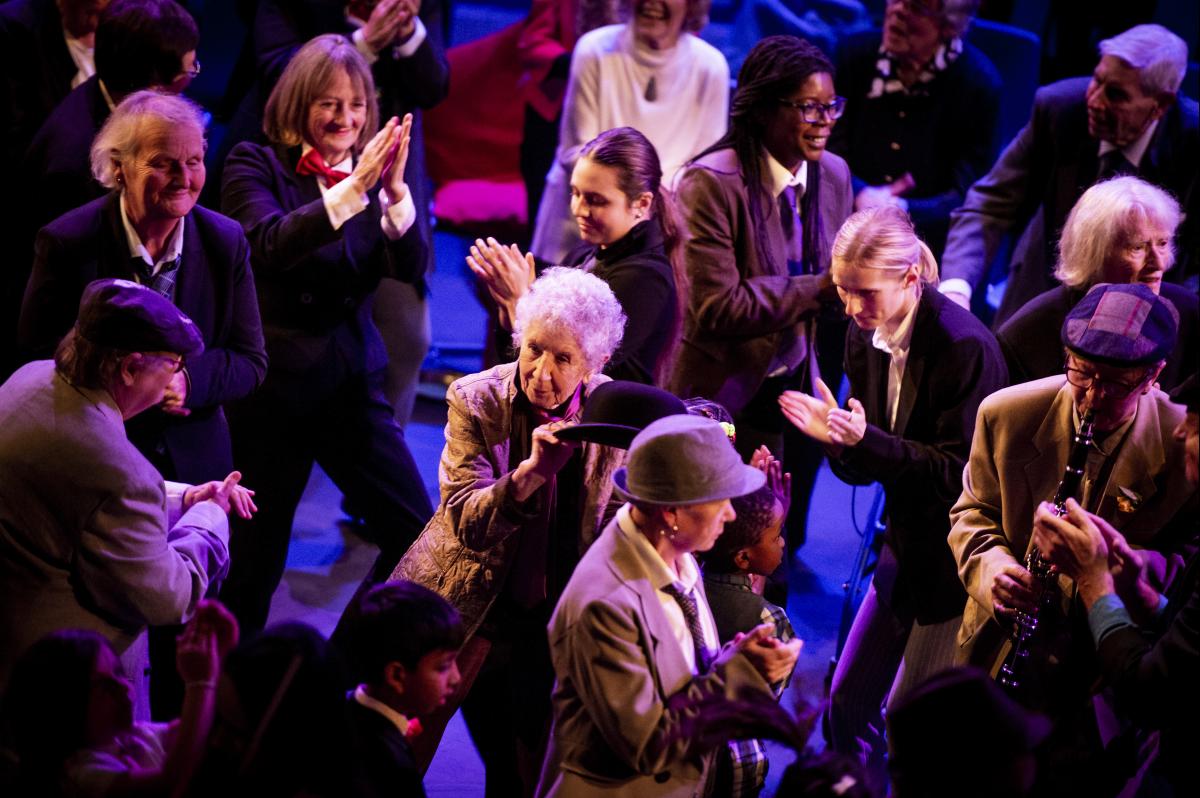
There is now substantial research and evidence, which shows that taking part in performing arts activity brings benefits for older people living longer. TV programmes such as the BBC’s Our Dementia Choir illustrate beautifully the power music can have in reducing the impact of symptoms such as depression and agitation, and in turn the isolation that those living with dementia feel. These improvements in quality of life can often be greater than any symptom control provided by drugs, which are hugely expensive to the NHS over the lifespan of an individual’s illness.
Little wonder that the NHS is now taking social prescribing seriously and is looking to arts and culture organisations to help them meet the challenges surrounding ageing.
Our “From Bingo to Bartok” report https://www.orchestraslive.org.uk/news/bingo-to-bartok/ released in partnership with City of London Sinfonia, shows the extent to which UK orchestras are already providing support for creative ageing through a wide range of initiatives.
The report highlights a shared set of characteristics across the breadth of orchestral projects, which help to achieve the best outcomes for participants, as well as provide new models and ways of working for the orchestras themselves. These include:
-
The potential for scalable activity and replicable models. For example, Orchestras Live and Sinfonia Viva’s Creative Journeys project https://www.orchestraslive.org.uk/projects/creative-journeys, improves social interaction between care home residents to help reduce loneliness and increase conversation; a multi-partner model which has the potential to scale up and reach many more vulnerable older people living in residential homes.
-
Growing professionalism in delivery by the sector resulting in new training and CPD for musicians, as well a greater understanding of the impact of projects on musicians themselves.
-
Active partnerships between clinicians/care providers and musicians in delivery settings leading to improved planning, resulting in better shared learning and achieving a higher quality of experience.
-
Projects engaging older participants in creative design and ownership achieve sustainability and wider community impact.
-
The focus of research is shifting from participant benefits to specific aspects and modes of delivery, supporting informed project planning.
Following the launch of this research, Orchestras Live and City of London Sinfonia are developing international links with other countries who are interested in the innovative approaches UK orchestras are taking to creative ageing.
We are working with the Association of Finnish Orchestras through a creative exchange programme to share our expertise in training musicians for health and wellbeing work and devising creative engagement programmes; two areas in which UK orchestras are recognised as world leaders. Sarah Derbyshire, CEO of Orchestras Live and Matthew Swann, CEO of City of London Sinfonia, will guest present at the Association’s national conference in April on these topics.
Orchestras Live has long advocated for the power of music to support people of all ages, and particularly those who are older, to live more fulfilling lives. Last year saw the tenth anniversary of our intergenerational Hear and Now project in partnership with the Philharmonia Orchestra.
What started out as a project primarily to explore whether an international symphony orchestra could be relevant to people who had different cultural interests and patterns of life, has evolved into an award-winning, intergenerational community project that unites the old and the young in music making and creativity.
The University of Bedfordshire recently launched research on the outcomes of the 10 years of the project, details of which can be found here https://www.orchestraslive.org.uk/projects/hear-and-now
The project shows that people living with dementia are not only capable of creating quality music, but can learn, can take risks, and can benefit profoundly by being part of a dynamic community where their contribution is valued.
For the young people, making music with much older people has given them insight into the lives of a generation they know little about, and had a positive effect on their perceptions, understanding and respect.
Over time the integrated approach of Hear and Now has seen the demarcation lines between the groups fade, becoming more of a unified ‘company’ engendering a strong sense of a creative community.
This democratic and inclusive approach to creating music has the potential to create societal change that reaches far beyond the immediate community of participants. It can provide long-term solutions and better outcomes for healthcare and social care providers. It can bring local communities together through creative projects and generate civic pride.
The challenge now is to work across the sector to establish a coherent picture of the work undertaken by individual orchestras, demonstrating the national impact and supporting a meaningful dialogue with health and social care providers. As a national organisation collaborating with so many orchestras, local authorities, community organisations and healthcare providers, Orchestras Live stands ready to play its part in developing a more integrated approach between the cultural and health sectors.
Find out more about Orchestras Live here:
https://twitter.com/OrchestrasLive
https://www.linkedin.com/company/orchestras-live
